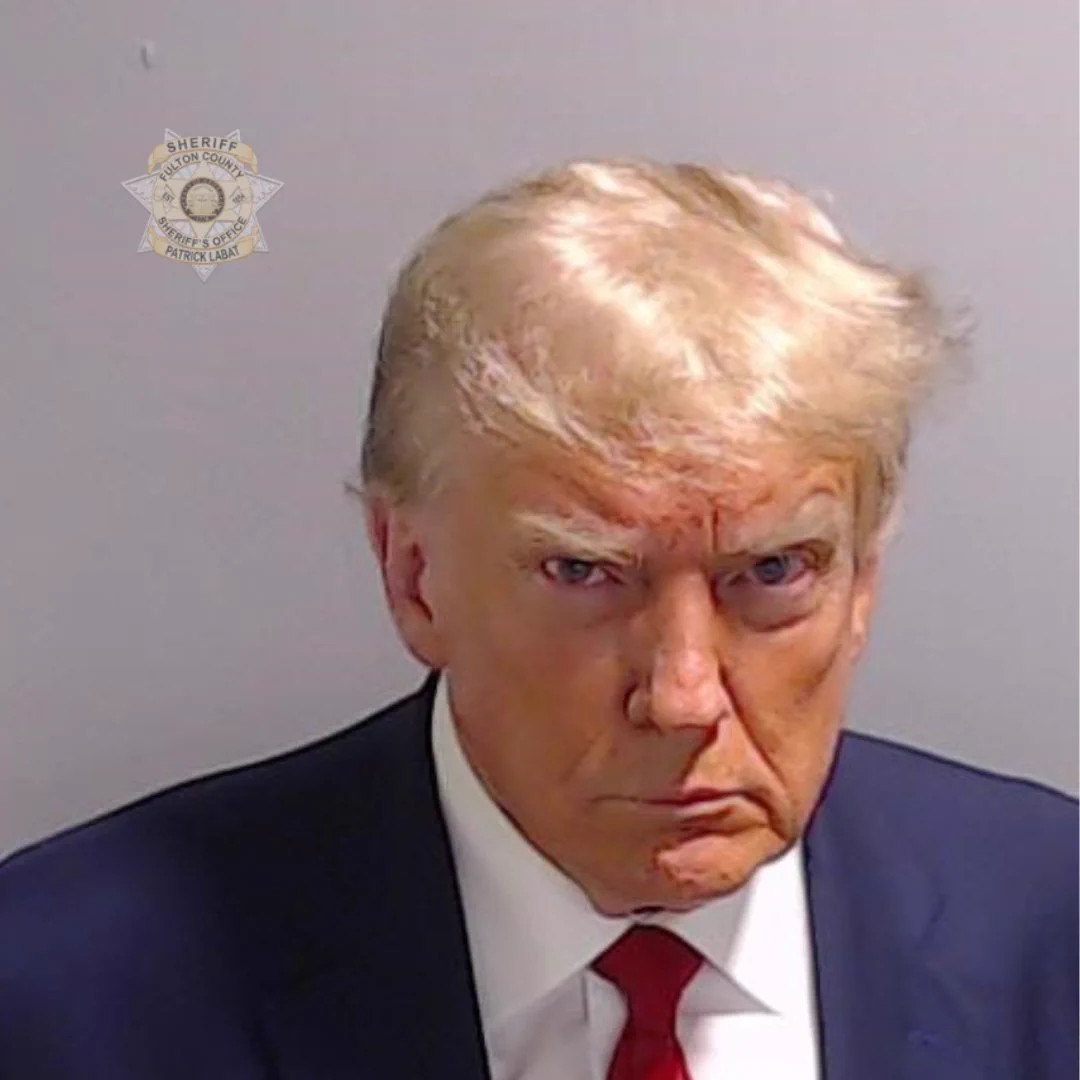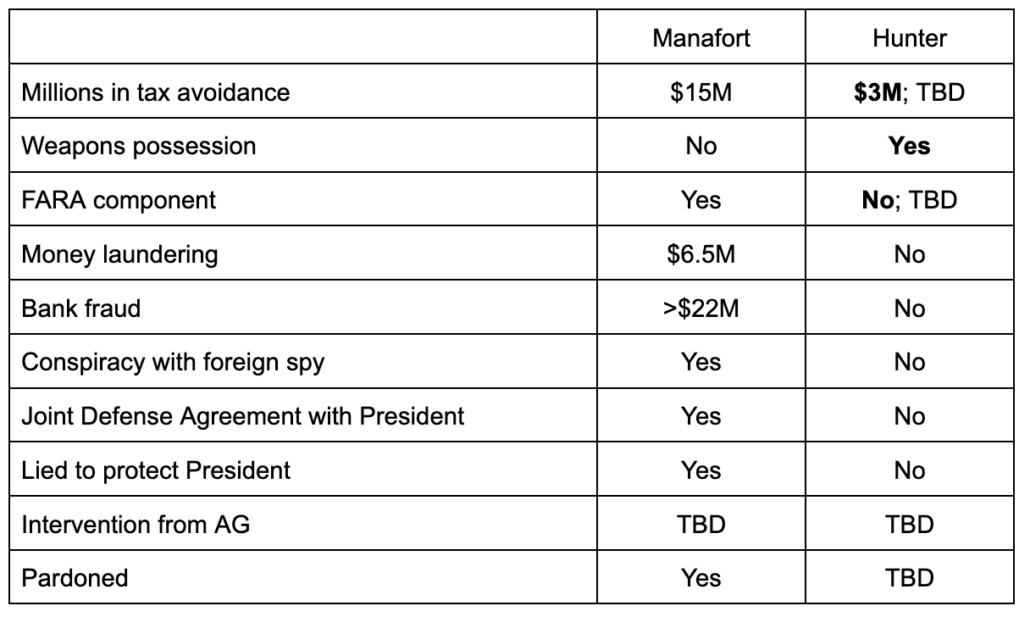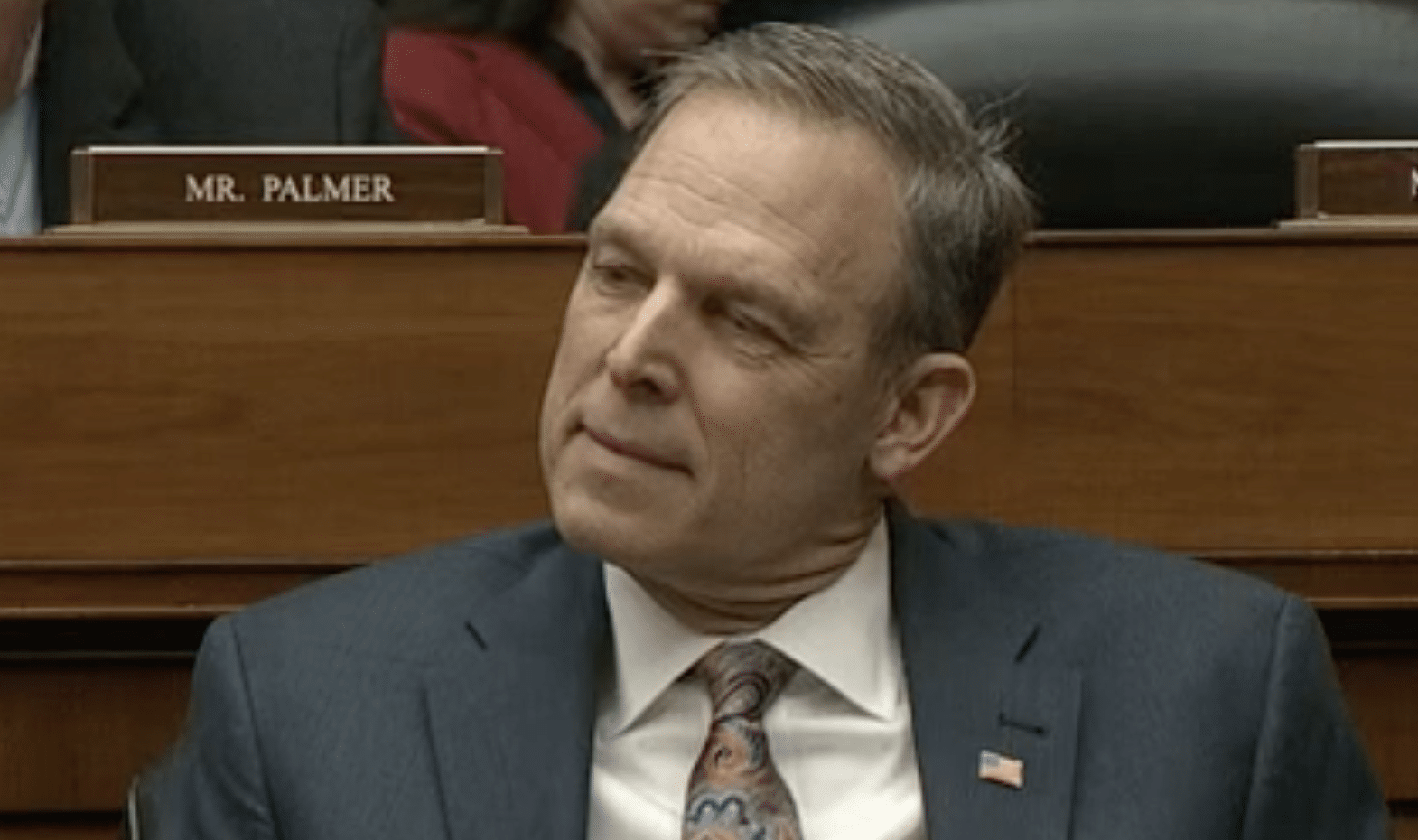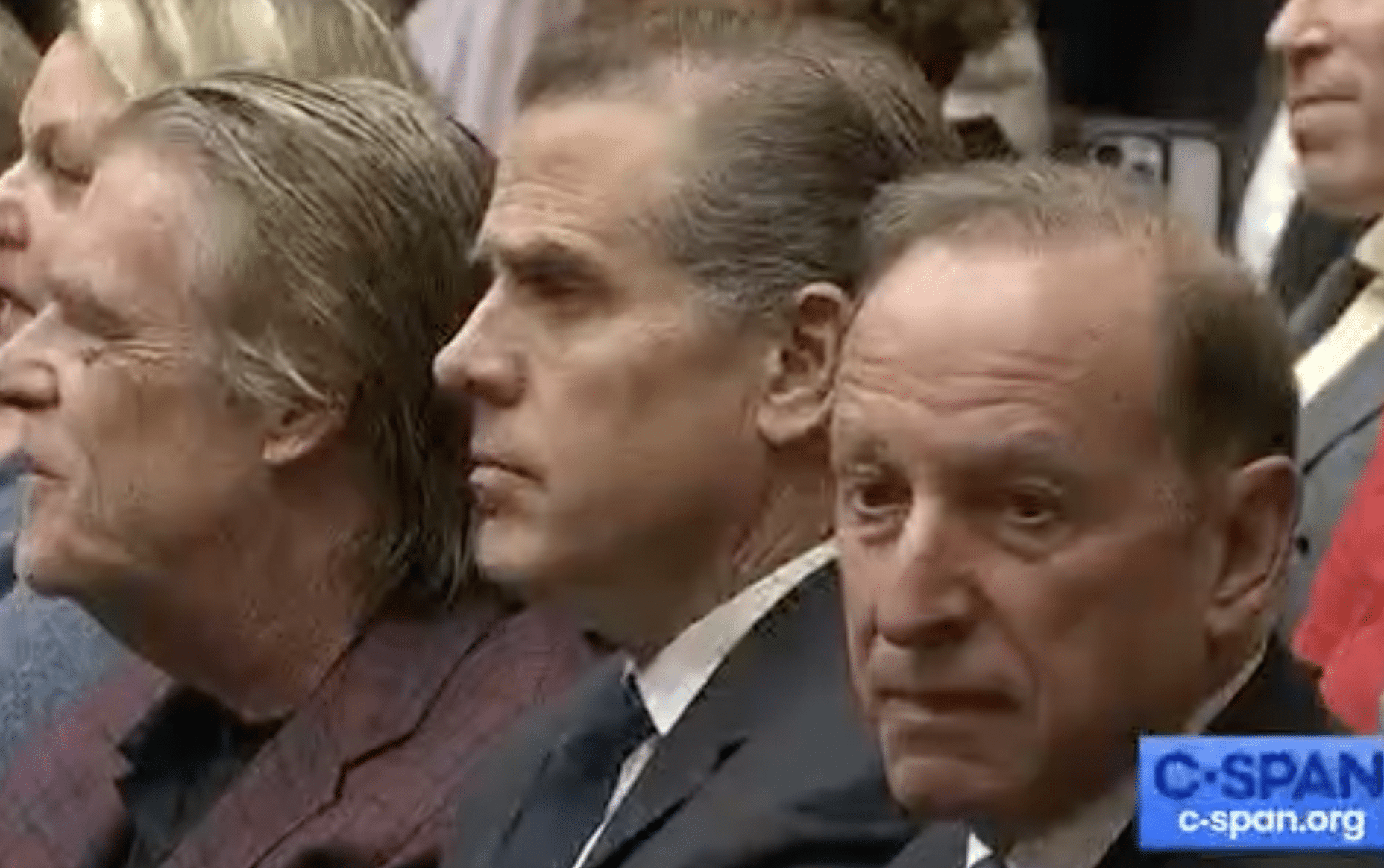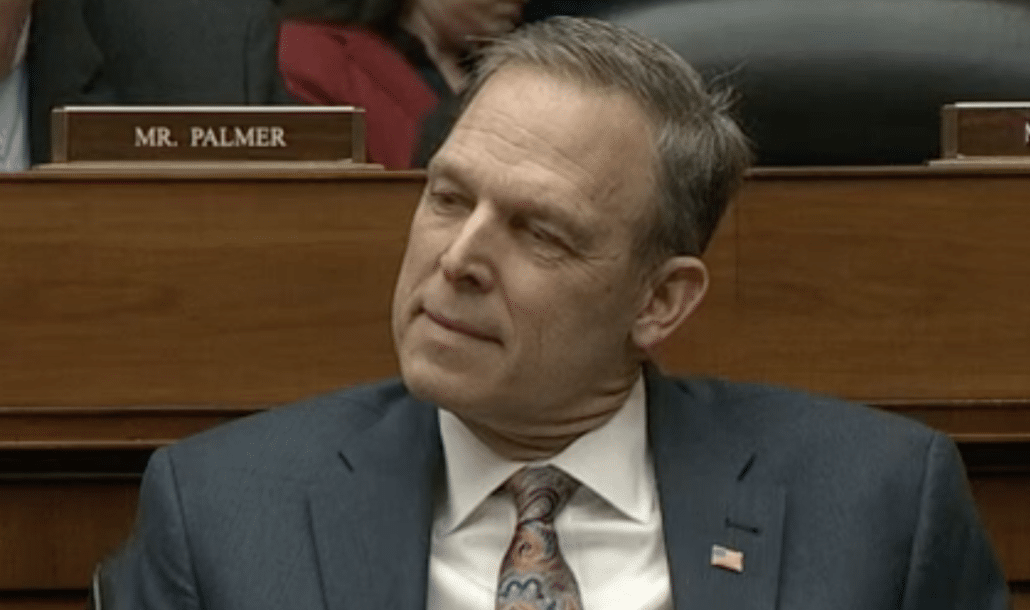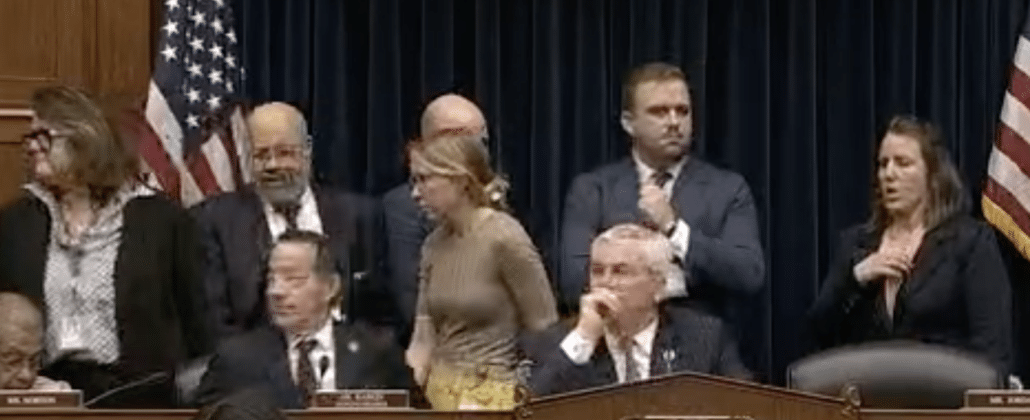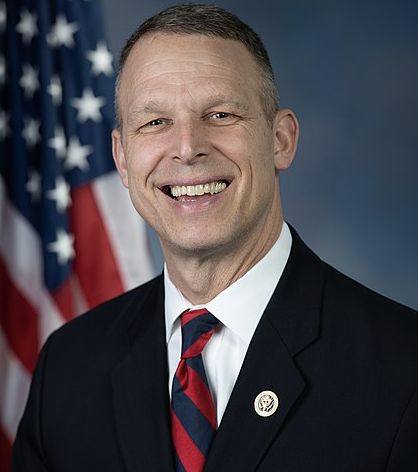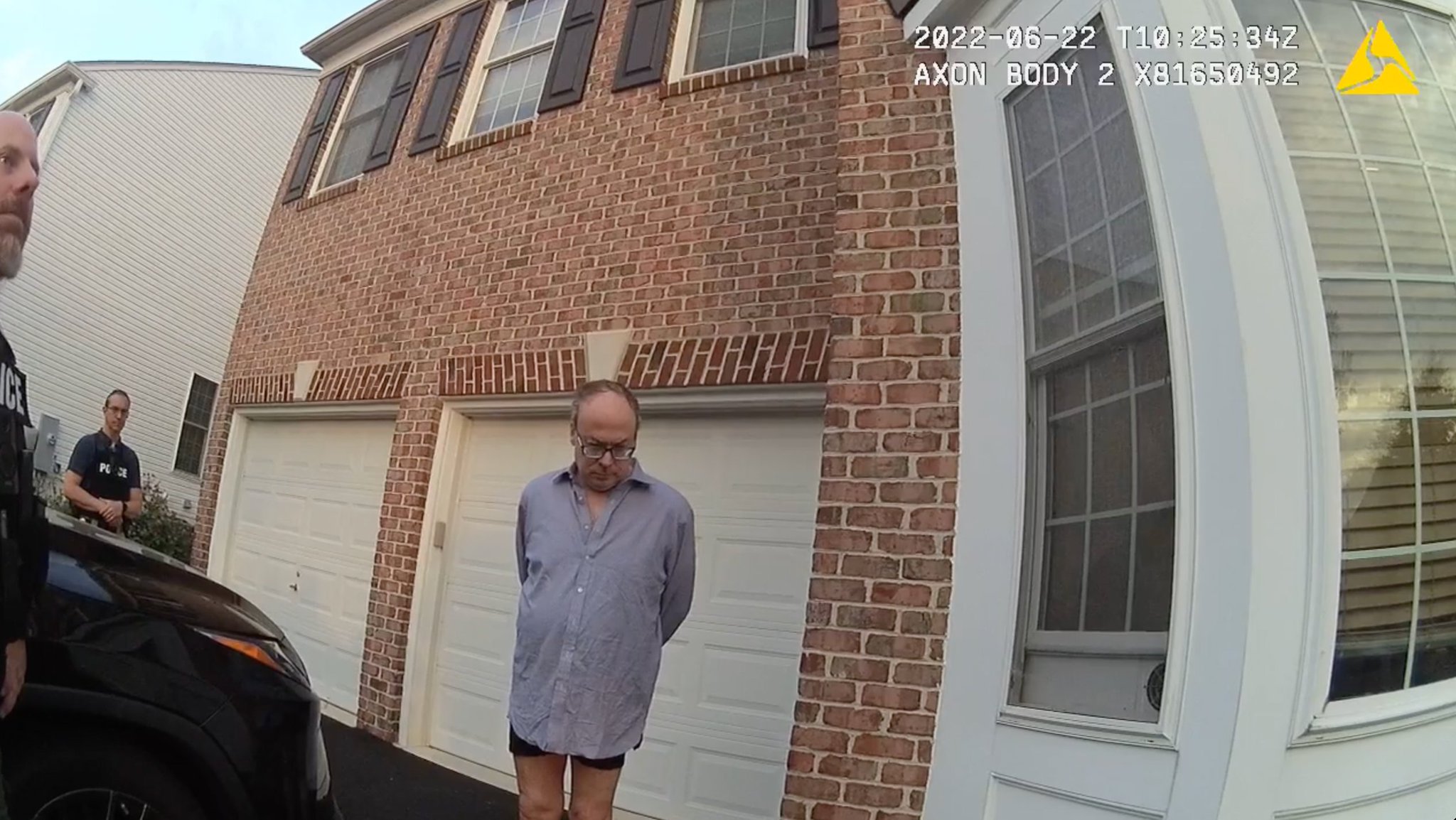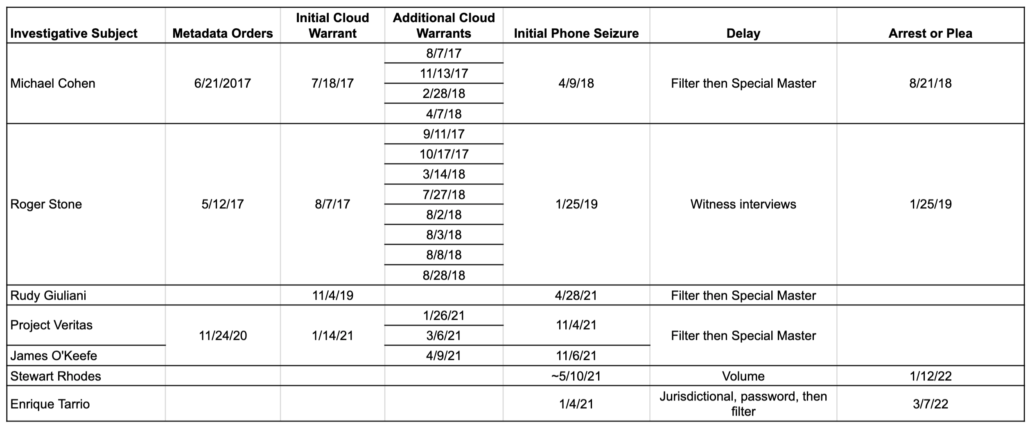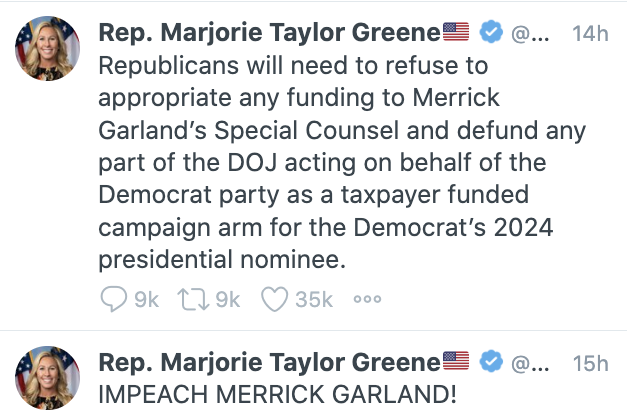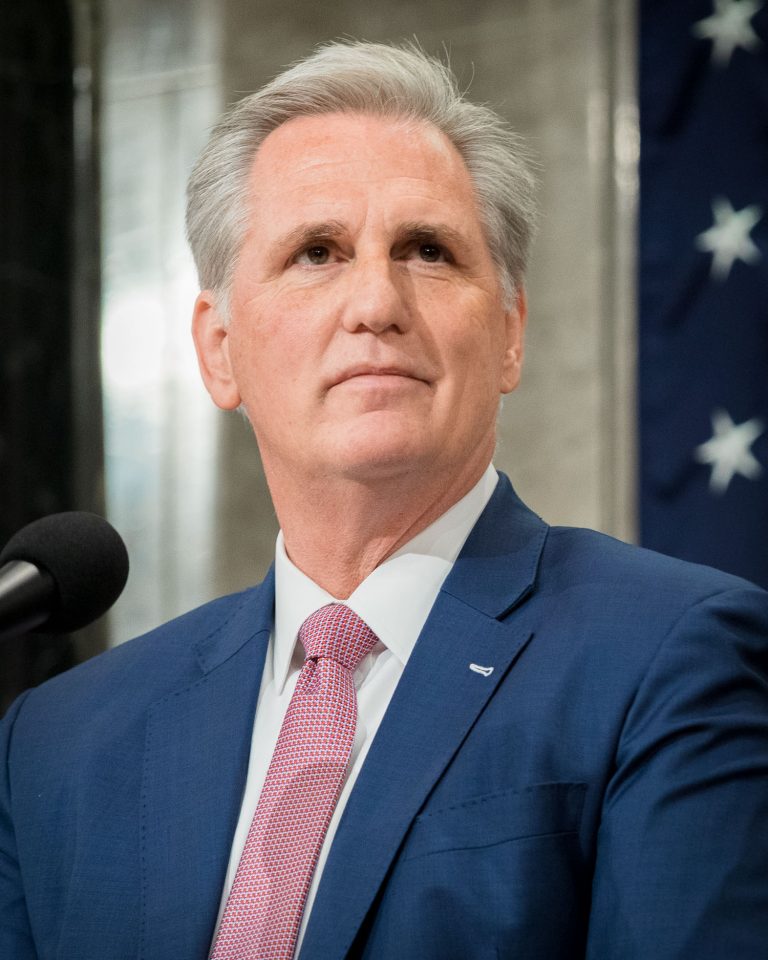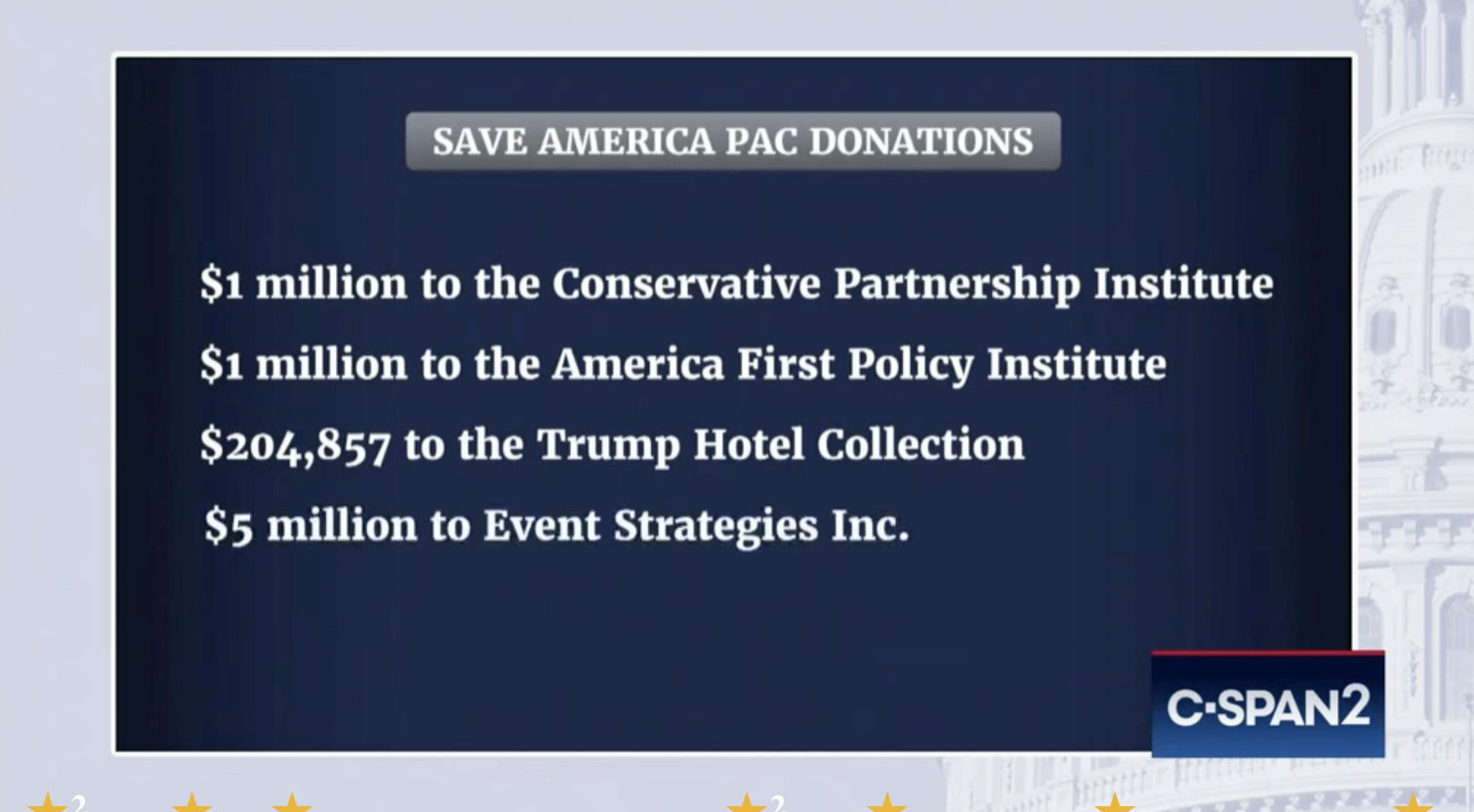How One New Hampshire Voter and One Politico Journalist Refused to Hold “a Pig … a Womanizer … [an] Arrogant Asshole” Accountable
Politico has an interesting profile of a two-time Obama voter, who will today become a three-time Trump voter, New Hampshire voter Ted Johnson.
It demonstrates that Johnson is driven by the very same false beliefs that Scott Perry is, which I laid out here.
Johnson admits that Trump is a pig. He even admits some concern about Trump’s stolen documents — before he parrots the false claims he learned on Fox News about that investigation.
And the Mar-a-Lago classified documents case in Florida? It’s the one that gives Johnson a modicum of pause. “You don’t f— around with classified material. Whoever advised him he could have that — he should have gave that s— up,” he said. “But he was being the stubborn, arrogant person that he is.” And he added, “I didn’t like the way the FBI did it. The raid was ridiculous. And that just emboldened me.”
But nevertheless Johnson will vote for the pig … womanizer … arrogant asshole today because he believes that Trump will bring accountability.
“And trust me, the guy’s a pig, he’s a womanizer — arrogant a—–e,” Johnson said of Trump. “But I need somebody that’s going to go in and lead, and I need somebody that’s going to take care of the average guy.”
“But is taking care of the average guy and breaking the system the same thing?” I said.
“Yes,” he said. “Because they’re all in it for themselves.”
“And if you break the system, what does that look like?”
“Accountability,” he said.
Go read it. It’s precisely the dynamic that I’m preparing to write about: how Trump trained people like Scott Perry and Ted Johnson to hate rule of law while calling that disdain for rule of law “accountability.”
But while you’re reading it, watch journalist Michael Kruse’s own blindspot. For much of the article, Kruse lets Johnson babble on, voicing his false beliefs about Trump’s legal woes.
Kruse largely lets Johnson spout those false beliefs unchallenged. But he pushes back when Johnson raises Hunter Biden.
Sort of.
Johnson started talking about “Russia-gate” and “Biden’s scandals” and Hunter Biden. What, I wondered, did Hunter Biden have to do with Nikki Haley? “She’s not going to hold anybody accountable for what they’ve done,” Johnson told me. “People need to be held accountable. That’s why you’ve got to break the system to fix the system,” he said. “Because it’s a zero-sum game right now. And to be honest with you, the Democrats are genius. They did anything they could do to win and gain power, even if they lie, cheat, steal. … What they’re doing is they’re destroying the country. Who could bring it back?” He answered his own question: “Trump’s the only one.” [my emphasis]
Rather than contest Johnson’s premise that Joe Biden has scandals, Kruse instead challenges Johnson as to what Hunter has to do with Nikki Haley.
Then later in the story, Kruse himself raises Hunter Biden as the counterpart of accountability to Trump.
“Accountability is accountability. But they’re throwing so much stuff at this guy, and it’s almost like I’m rooting for him,” he told me. “This is a whole system of government going after one man who, probably, I bet, right now, 85 million people want to be president.”
“But accountability is accountability,” I said.
“Accountability is accountability,” he said.
“Whether it’s Hunter Biden or Donald Trump,” I said.
“But do I trust the system?” he said. “I don’t.”
Kruse himself, who has actually been pretty sympathetic to Joe Biden in the past, likens the President’s son’s alleged crimes to Trump’s coup attempt.
Now, perhaps Kruse allowed Johnson to make all these false claims uncontested simply to let him talk. It’s a useful interview. I shouldn’t gripe.
But adopting Hunter Biden as the counterpart of accountability for Trump is itself a false claim. It’s why I spend so much time calling out shoddy dick pic sniffing stenography.
The record shows that even if everything Republicans allege about Hunter Biden were true (and at this point, DOJ has let statutes of limitation on FARA crimes expire without charges, so it seems that in going-on-six-years of looking, DOJ never substantiated FARA crimes), his actions still wouldn’t come close to those of Paul Manafort, whom Trump pardoned with nary a whisper.
Perhaps a better response to Johnson’s complaints about Hunter Biden would be a question about Trump’s decision to pardon Manafort for doing far worse? How is that accountability? Manafort is the quintessential sleazy insider and he gets a pass.
Plus, the record shows that Trump’s crimes are not a mirror of Hunter’s; rather, Trump’s crimes cannot be dissociated from the charges against Hunter.
The record shows that Trump started pushing Rudy Giuliani and Lev Parnas to gin up an investigation into Hunter Biden no later than December 2018, at such time as Joseph Ziegler was struggling to come up with some excuse to turn non-payment of taxes into a criminal case.
The record according to Johnathan Buma shows that before DOJ opened a grand jury investigation into Hunter Biden, FBI agents on the investigation enthusiastically accepted dirt on Hunter Biden from two Ukrainians that Buma would acknowledge were part of an influence operation.
The record shows that four days after Joe Biden announced he was running for President, DOJ decided the grand jury investigation into Hunter Biden would be in Delaware, where Joe might one day become a target, rather than Washington DC or Los Angeles, where any tax crimes would have happened. Ziegler first claimed, then backed off a claim, that Bill Barr made this decision personally.
The record shows that the first IRS supervisor on this case documented what he viewed to be problems with the predication of it and ongoing political influence into it.
The record shows that Donald Trump extorted Volodymyr Zelenskyy in an attempt to get an investigation into Hunter Biden and his father. In that same conversation, he asked Zelenskyy to work with both his personal attorney and with Bill Barr to gin up such an investigation.
The record according to Chuck Grassley shows that even while Trump was claiming to care about Burisma corruption, his DOJ shut down an investigation into Mykola Zlochevsky, one that had been opened while Joe Biden was Vice President and Hunter was on the board of Burisma. Grassley says DOJ shut that investigation down in December 2019.
The record shows that the day after DOJ obtained a warrant to access a laptop obtained from John Paul Mac Isaac, Barr’s chief of staff texted him to say, “laptop on way to you.”
The record shows that days later, Bill Barr set up a dedicated channel by which Rudy Giuliani could share dirt he had obtained, including from a known Russian spy and almost certainly from Burisma, such that it could be laundered into the investigation into Hunter Biden.
The record shows that that process resulted in DOJ obtaining an informant report describing a conversation with Zlochevsky. Remarkably, the FBI neglected to write down what date that conversation happened even though that’s how they validated that it did occur, but it almost certainly dates to the period when DOJ was shutting down an investigation into Zlochevsky. The informant report recorded a claim of bribery of Joe Biden that conflicted with claims Zlochevsky had made just months earlier, when DOJ was (per Chuck Grassley) still investigating him.
The record shows that FBI made Steve Bannon associate Peter Schweizer an informant so he could pitch Hunter Biden dirt leading up to the 2020 election.
The record shows that Trump bitched Bill Barr out about the Hunter Biden investigation shortly after the October 14, 2020 NYPost story on the hard drive from Hunter Biden. Days later, Richard Donoghue ordered the Hunter Biden investigators to accept a briefing about that bribery allegation.
The record shows that, shortly before David Weiss used the FD-1023 obtained during the course of Scott Brady’s effort to launder dirt into the Hunter Biden investigation to justify reneging on the plea deal he had agreed to, Bill Barr described being personally involved in the handling of it.
The record shows that, the day after Trump hosted Tony Bobulinski at a Presidential debate, Bobulinski told the FBI things that conflict with his own communications.
The record according to Cassidy Hutchinson shows that shortly after that Bobulinski interview with the FBI, he had a secret meeting with Mark Meadows at which Trump’s Chief of Staff handed Bobulinski something that might be an envelope.
The record shows that, in the same call where Trump threatened to replace Jeffrey Rosen if he didn’t start endorsing Trump’s claims of voter fraud, he also criticized the handling of the Hunter Biden case.
The record shows that Trump repeatedly, publicly, demanded criminal charges against Hunter Biden, including in the January 6 speech that set off an insurrection.
The record shows that when Trump first learned he’d be indicted, he raised pressure on the Hunter Biden investigation.
The record shows that on the day Hunter’s plea deal was released, Trump complained three times, twice suggesting Joe Biden was implicated in this plea deal.
“Wow! The corrupt Biden DOJ just cleared up hundreds of years of criminal liability by giving Hunter Biden a mere ‘traffic ticket.’ Our system is BROKEN!
“A ‘SWEETHEART’ DEAL FOR HUNTER (AND JOE), AS THEY CONTINUE THEIR QUEST TO ‘GET’ TRUMP, JOE’S POLITICAL OPPONENT. WE ARE NOW A THIRD WORLD COUNTRY!”
“The Hunter/Joe Biden settlement is a massive COVERUP & FULL SCALE ELECTION INTERFERENCE ‘SCAM’ THE LIKES OF WHICH HAS NEVER BEEN SEEN IN OUR COUNTRY BEFORE. A ‘TRAFFIC TICKET,’ & JOE IS ALL CLEANED UP & READY TO GO INTO THE 2024 PRESIDENTIAL ELECTION. . . .”
The record shows that, among the other complaints and false claims Trump made about Hunter’s prosecution, one targeted David Weiss and demanded a death sentence.
Weiss is a COWARD, a smaller version of Bill Barr, who never had the courage to do what everyone knows should have been done. He gave out a traffic ticket instead of a death sentence. . . .
The record shows that when Trump attacks people on social media, they get threats, often so bad as to uproot their entire lives.
The record also shows that former President Trump’s words have real-world consequences. Many of those on the receiving end of his attacks pertaining to the 2020 election have been subjected to a torrent of threats and intimidation from his supporters. A day after Mr. Trump’s “IF YOU GO AFTER ME, I’M COMING AFTER YOU!” post, someone called the district court and said: “Hey you stupid slave n[****]r[.] * * * If Trump doesn’t get elected in 2024, we are coming to kill you, so tread lightly b[***]h. * * * You will be targeted personally, publicly, your family, all of it.” Special Counsel Br. 5; see United States v. Shry, No. 4:23-cr-413, ECF 1 at 3 (Criminal Complaint) (S.D. Tex. Aug. 11, 2023). The Special Counsel also has advised that he has received threats, and that a prosecutor in the Special Counsel’s office whom Mr. Trump has singled out for criticism has been “subject to intimidating communications.” Special Counsel Mot. 12.
The record shows that investigators in the Hunter Biden case were, just like prosecutors on Trump’s own cases, threatened in response to manufactured political outrage. That includes David Weiss himself. Here’s how former AUSA Lesley Wolf described those threats.
My desire to serve my community and my country, such a great source of pride, has recently come at significant cost. As a private person, the once routine and mundane details of my life have become the subject of public interest in an invasive and disturbing manner. Far worse, I’ve been threatened and harassed, causing me to fear for my own and my family’s safety.
I mentioned earlier that I recently left the U.S. Attorney’s Office. My decision to do so long predated and was unconnected to the baseless allegations made against me. In fact, I agreed to stay with the office months longer than planned because of my belief that my family and I were safer while I remained an AUSA.
I have no doubt that after today the threats of harassment and my own fear stemming from them will heighten. This not only scares me, but as someone who loves this country, it also breaks my heart.
We are living in a day and age where politics and winning seem to be paramount, and the truth has become collateral damage.
In short, the record shows that Trump was always a part of the Hunter Biden investigation.
I think the record is pretty clear that Hunter Biden owned a gun for 11 days during the worst days of his addiction. The record is pretty clear that as he tried to rebuild his life, it took several years to straighten out his taxes — but less time than it took Roger Stone to straighten out his taxes, even while the rat-fucker was using a shell company to shield his funds from the IRS.
But the story of Hunter Biden’s alleged crimes — the things that Michael Kruse seems to think mirror Trump’s 91 felony charges — is a story that cannot be told (or should not, were journalism engaged in a responsible pursuit), without also telling the story of Trump’s extortion, Rudy’s consorting with Russian spies, Bill Barr’s hijacking of DOJ for partisan purpose, Bobulinski’s seemingly inconsistent story and whatever role the secret meeting with Meadows had in that story, and Trump eliciting dangerous threats against every participant in the legal system who does not bow to his will, including on this case.
I get that journalists believe that the story of Hunter Biden is a story of DOJ holding Biden’s family member accountable for what they gleefully report are real crimes.
But it is, no less than that, a story of Trump crimes, including, possibly, under two statutes that prohibit this kind of pressure explicitly, 26 USC 7217 and 26 USC 7212. The story of Hunter Biden’s prosecution is the story of Trump’s successful going-on-six-year effort to hijack rule of law to target Joe Biden, an effort that builds on years of similar conduct targeting Hillary Clinton.
I’m grateful that Kruse has depicted Johnson’s nonsensical beliefs in all their absurdity. It’s an absolutely critical step in underestanding how Trump taught Republicans to hate rule of law.
But another step is in unpacking how journalists have come to reflexively equate Hunter Biden with Donald Trump, how journalists have come to simply ignore the five years of corruption that Trump and his lawyers engaged in to get us here, how journalists are not remotely curious about details in the public record about this case.
The reflexive equation of Hunter Biden with the President who targeted him for over five years is an equation every bit as manufactured by Donald Trump as Ted Johnson’s pathetic belief that Trump brings accountability rather than the opposite.

